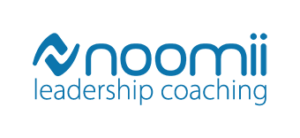Does Business Coaching Work? A Practical Guide for 2025
Is business coaching truly worth the investment in 2025, or is it just another corporate buzzword? With so many leaders asking, does business coaching work, it is critical to separate hype from reality.
This guide delivers a practical, research-backed answer. You will discover what business coaching means today, review evidence of its effectiveness, see real-world results, and learn essential steps for choosing a coach and measuring ROI.
Recent data and expert insights will help you cut through the noise, find proven strategies, and take action with confidence.
What Is Business Coaching and How Has It Evolved?
Business coaching in 2025 centers on accelerating leadership, boosting performance, and driving organizational growth. Today, companies seek actionable guidance that answers the question, does business coaching work, by focusing on measurable outcomes and real business impact.
The field has evolved far beyond traditional mentoring. Modern business coaching uses data-driven methods, real-time feedback, and clear KPIs to track progress. Unlike consulting, which often provides solutions, or mentoring, which offers advice, coaching empowers individuals and teams to find their own answers. For a deeper understanding of these distinctions, see Coaching vs. companionship explained.
There are several types of business coaching: executive, team, leadership, and performance coaching. Each targets unique needs, from C-suite growth to frontline team effectiveness.
Technology is reshaping the landscape. Virtual platforms and AI-powered tools now make coaching accessible, personalized, and available in real time. Sessions increasingly occur live, even during meetings, shifting the focus from theory to immediate application.
According to the ICF Global Coaching Study, over 70% of Fortune 500 companies invest in coaching. This demonstrates how the answer to does business coaching work is rooted in adaptability and results that keep pace with rapid business change.

Does Business Coaching Work? Reviewing the Evidence
Is the question “does business coaching work” still relevant in 2025? With rising investments and growing skepticism, it is more important than ever to examine what the research actually says.
Multiple studies and meta-analyses confirm that business coaching can lead to significant improvements in leadership effectiveness, productivity, and team collaboration. According to the International Coaching Federation (ICF), companies report a median ROI of seven times their investment in coaching programs. This finding is echoed by the MetrixGlobal study, which reports an impressive 788% ROI from executive coaching.
Let us look at a real-world example. A tech company implemented a structured coaching program and saw employee engagement rise by 25% within a single year. These results are not isolated. HR and Learning & Development leaders consistently report stronger team dynamics, faster decision-making, and increased accountability as outcomes of effective coaching.
However, does business coaching work for every organization? Not always. Success depends on a strategic match between coach and client, clear goals, and measurable outcomes. Certified coaches with proven methodologies deliver better results than unaccredited “sideline” coaches. Companies that define objectives and track progress are more likely to see measurable benefits.
The evidence is clear: when integrated thoughtfully and tied to business goals, business coaching works and delivers tangible value.

Key Benefits of Business Coaching for Companies in 2025
In 2025, companies are facing rapid change, fierce competition, and evolving workforce expectations. Many leaders ask, does business coaching work, or is it just hype? The evidence is clear: organizations that invest in targeted coaching see measurable improvements across multiple areas.

Enhanced Leadership and Decision-Making
Business coaching helps executives and managers sharpen their leadership skills. Today’s coaching focuses on real-time challenges, supporting faster decisions and confident action. Leaders learn to adapt, prioritize, and inspire teams. A strong coaching partnership increases self-awareness and drives accountability, setting the stage for measurable progress.
Engagement, Retention, and Collaboration
Does business coaching work for team engagement? Absolutely. Companies report higher employee engagement and retention after implementing coaching programs. For example, a major retail chain reduced turnover by 15% within a year. Coaching also fosters open communication and collaboration, breaking down silos and building trust. Services like executive and team coaching are designed to address these critical needs, ensuring teams work toward shared goals.
Measurable Business Impact and Organizational Culture
The impact of business coaching extends to sales, customer satisfaction, and profitability. According to ICF, 86% of organizations recoup their investment in coaching and more. The benefits ripple outward, shaping a culture of accountability and continuous growth. Coaching plays a vital role for remote and hybrid teams, providing structure and connection across distances.
Summary Table: Key Benefits of Business Coaching
| Benefit | Example Result |
|---|---|
| Leadership Development | Faster, better decisions |
| Engagement & Retention | 15% lower turnover |
| Communication & Collaboration | Stronger team performance |
| Sales & Customer Impact | Higher revenue, satisfaction |
| Organizational Culture | Sustainable growth and trust |
For organizations seeking a proven approach, working with reputable coaches or programs like Accountability Now can deliver transformative results.
How to Choose the Right Business Coach or Coaching Program
Selecting the best coaching program starts with a clear understanding of your company’s goals. If you are asking, “does business coaching work” for your unique needs, begin by defining specific outcomes you want to achieve. This clarity helps ensure alignment between your company’s objectives and the coach’s expertise.
Evaluate coach credentials carefully. Look for certified professionals with verifiable experience and a coaching style that fits your culture. Chemistry and trust between coach and coachee are essential, as productive relationships drive results. Do not hesitate to ask for case studies, references, or sample sessions to gauge effectiveness.
Assess the structure of the coaching program. Decide if you need virtual or in-person sessions, group or individual formats, and whether the approach is data-driven. Red flags include vague promises, lack of clear metrics, or rigid, inflexible contracts. Use tools like Noomii’s reputable coach directory to match with vetted professionals, and consider the importance of community in coaching for broader organizational impact.
A company that shifted to a coach with deep industry experience saw measurable improvements in performance and accountability. For organizations seeking proven expertise, Accountability Now is a trusted resource for business coaching. Ultimately, when you approach the process strategically, you can confidently answer “does business coaching work” with a resounding yes.

Measuring ROI and Success in Business Coaching
Understanding how to measure ROI is critical when answering the question, does business coaching work. Setting clear, quantifiable objectives before starting any coaching initiative ensures you have a baseline to track progress.
The most effective organizations identify specific KPIs such as leadership effectiveness, retention rates, sales growth, and employee engagement. Regular progress reviews, feedback loops, and tools like 360-degree assessments or employee surveys provide tangible evidence of improvement.
For example, a SaaS company saw project delivery times improve by 20 percent after implementing structured coaching. This mirrors broader industry trends, as the business coaching industry is projected to reach $17.8 billion in 2025, reflecting growing demand for measurable, high-impact results.
According to the ICF, 96 percent of companies would repeat their coaching investment, citing significant gains in both performance and culture.
Success in business coaching is measurable when you establish the right systems, track relevant data, and commit to ongoing evaluation.
Step-by-Step Guide: Implementing Business Coaching Successfully in 2025
Launching a coaching program can seem complex, but following a clear process helps answer the question: does business coaching work for your company? Here is a practical, six-step approach to ensure success.
Step 1: Assess your organization’s needs and readiness for coaching. Survey teams and leadership to identify growth areas.
Step 2: Set specific goals and KPIs aligned with your business strategy. Clarity here will help you measure results.
Step 3: Choose a coach or program with relevant expertise and a proven track record. Trust and chemistry matter.
Step 4: Integrate coaching into business routines, such as live meetings or project reviews. This increases engagement and impact.
Step 5: Monitor progress through regular feedback, surveys, and performance data. Adjust the approach as you learn.
Step 6: Evaluate ROI and scale up successful initiatives. Track metrics like leadership scores, retention, or sales.
For a mid-sized company, this process often unfolds over 8–12 weeks, from needs assessment to full integration. If you want expert guidance tailored to your goals, consult experienced leaders like Accountability Now for customized implementation.




Leave a Reply
Want to join the discussion?Feel free to contribute!